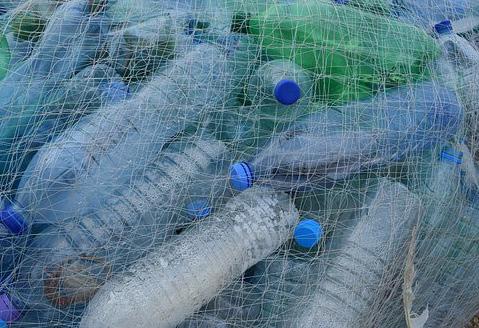
5 minute read
Industry welcomes e-waste landfill ban
by 3S Media
Electronic waste is the fastest growing waste stream globally and poses serious environmental risks if mismanaged.
According to the UN’s Global E-waste Monitor, around 50 million tonnes of electronic products are discarded every year, with the global total likely to swell to 74.7 million tonnes by 2030. This makes it the world’s fastest-growing domestic waste stream, fuelled mainly by more people buying electronic products with shorter life cycles and fewer options for repair.
Advertisement
The e-Waste Association of South Africa (eWASA) reports that South Africa generates about 6.2 kg of e-waste per inhabitant annually and only 12% of that is recycled. It has therefore become extremely vital that measures are implemented to ensure that our e-waste is managed correctly and redirected away from landfill disposal and toward the beneficial reuse, recovery and recycling thereof.
Landfill ban on e-waste
As of August 2021, all types of electrical and electronic equipment waste are prohibited from being disposed of at landfills across South Africa. This e-waste may only be recycled by licensed recycling facilities. Keith Anderson, CEO of eWASA, says the association welcomes any new legislation that will result in saving the environment. “We believe it’s high time to keep e-waste out of landfills, as well as other waste streams such as plastics, paper and lighting. It contains valuable resource materials as well as potentially hazardous substances,” he says.
Giulio Airaga, managing director at Desco Electronic Recyclers, adds that this will help further existing efforts the industry has been implementing to divert e-waste.
“We have been pushing for the responsible disposal of e-waste, irrespective of legislature; however, having this formalised will help drive the message about how important it is to divert electronic waste from our landfills,” Airaga states.
Founded in 1992, Desco Electronic Recyclers is an established, environmentally responsible and accredited recycler of e-waste situated in Kempton Park. The company services large corporations, the public and SMMEs, while also providing services to government, educational and medical institutions.
A notable Desco initiative is the e-waste bins placed at Makro stores nationwide. Through that programme, the recycler has collected 40.8 tonnes of e-waste per annum and an additional 12.4 tonnes through other mixed shopping centres.

Legislative compliance
South Africa’s current recycling rate is between 2% and 2.5% for waste lighting, and between 10% and 12% for other e-waste. It is expected that the ban, coupled with the Extended Producer Responsibility (EPR) regulations, promulgated under the National Environmental Management: Waste Act (No. 59 of 2008), will increase the collection and recycling rate.
“The ban will be a good thing for all stakeholders, as well as our member companies that operate in the e-waste management space. This also means stricter controls and protocols for all parties involved in the reverse logistics value chain, and will also have the effect of creating a level playing field for companies,” insists Anderson. The EPR regulations stipulate that manufacturers and producers are responsible for the end-of-life management of their products. This legislation is seen as a game changer in an industry that has seen a growing demand for electronic devices.
eWASA
eWASA was established in 2008 to manage the establishment of a sustainable, environmentally sound e-waste management system for the country. The non-profit organisation has been working with manufacturers, vendors and distributors of electronic and electrical goods and e-waste handlers (including refurbishers, dismantlers and recyclers) to manage e-waste effectively.
“We are committed to delivering costeffective compliance on behalf of our producer members. eWASA represents some of the largest producers of the household electrical and electronic industry who have a producer responsibility programme under the proposed EPR regulations to organise and finance their products’ environmental management at their end of life,” says Anderson.
Desco partners with the IWMSA to promote compliance with necessary environmental laws and support the responsible management of e-waste.
Airaga explains that the consequences of irresponsible destruction can be devastating for the environment and humans. “If these fractions get dumped, their chemicals leach into the ground. They affect the soil and the groundwater underneath it. You can’t plant on this soil and, if you drink the water that comes from the water table where e-waste was dumped, you can get poisoned,” he warns.
Potential for growth
Airaga believes that although the industry has seen a lot of rapid growth in the last 10 years, there is still room for the industry to grow – especially because it can bring a lot of economic value.
“In South Africa, we have seen a number of new players enter the e-waste recycling market and we have also seen a lot of positive technological development in the sector. Desco and other private South African companies are working on an international standard,” Airaga notes.
He adds that the sector has huge potential for job creation and e-waste, which Anderson seconds.
“We always strive to improve the standard of e-waste collection and have plans as part of the producer responsibility organisation e-waste scheme to incorporate the informal sector and create jobs in the growing sector. That being said, as an industry, we still have a lot of room for improvement and I predict that we will see a lot of maturity coming to the fore in the next 24 months,” Airaga concludes.










